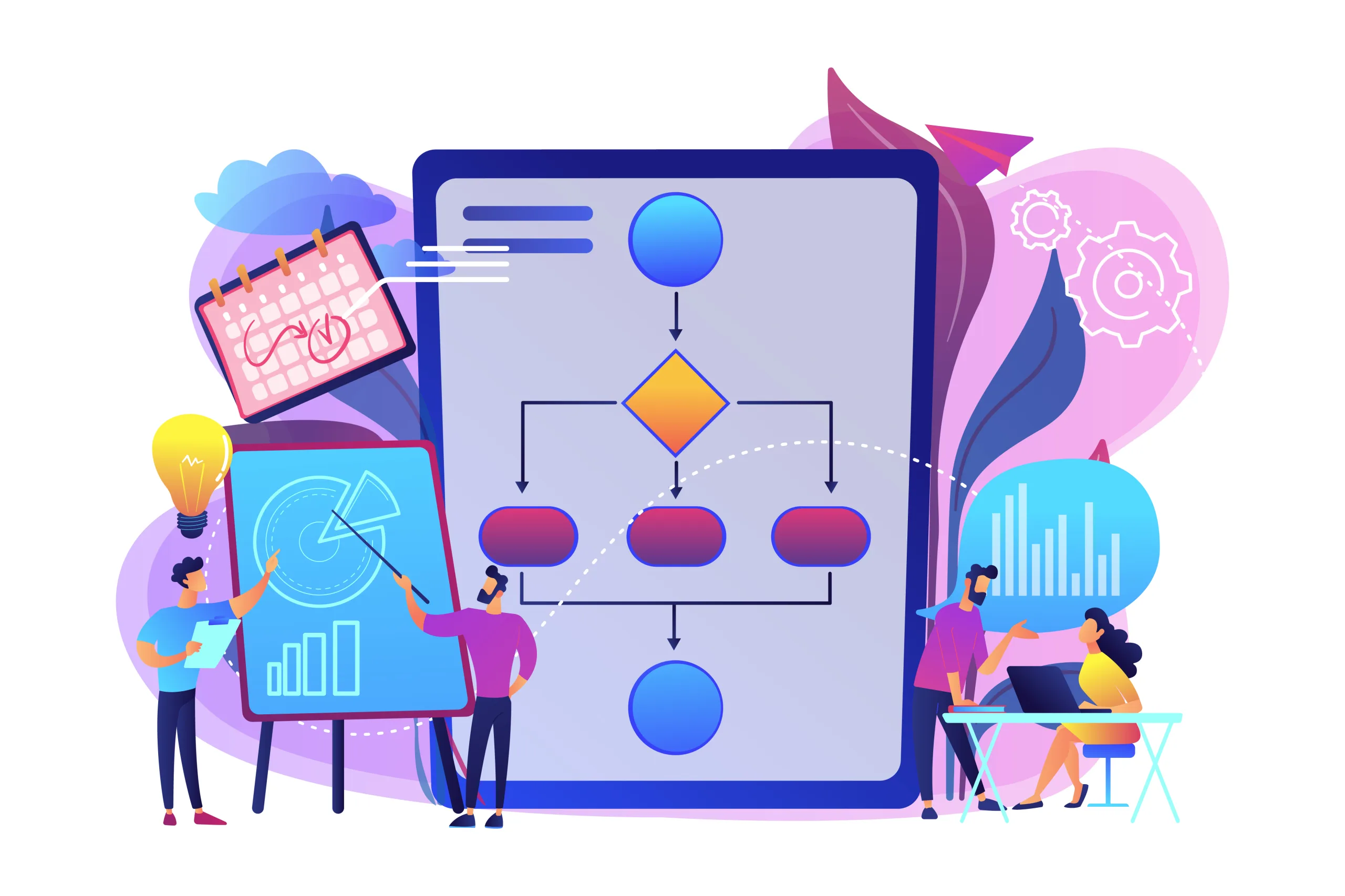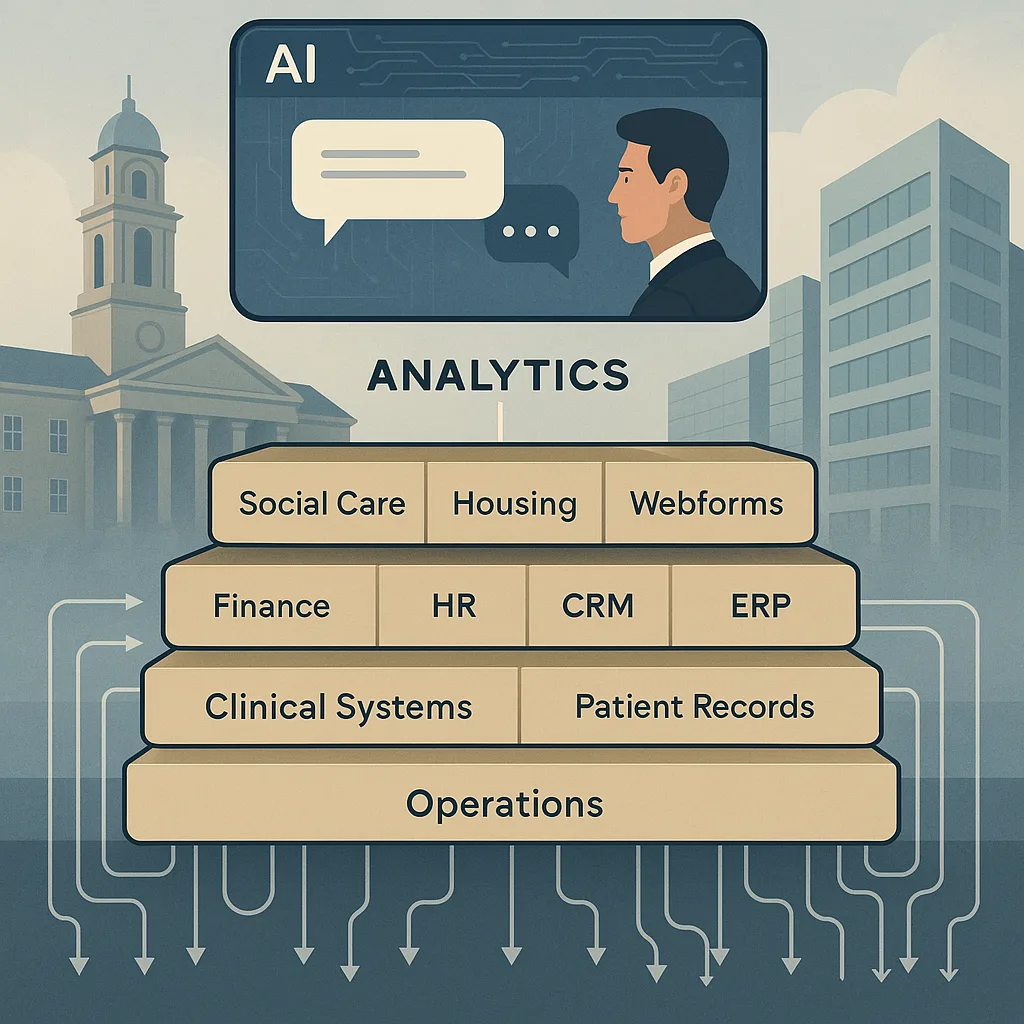
As councils across the UK undergo significant local government reorganisation, the pressure is on to deliver services more efficiently and equitably while ensuring that no resident is left behind. Whether it’s redesigning adult social care, harmonising council tax, or restructuring children’s services, these complex changes come with both opportunities and challenges. At itelligent-i, we believe that analytics and AI are essential tools for driving effective transformation, ensuring that councils can deliver services that are not only cost-efficient but also tailored to the evolving needs of their communities.
One of the biggest barriers to successful reorganisation is the lack of integrated data across services. Too often, councils, the NHS, the Department for Work and Pensions (DWP), and other public services work in silos. This fragmented approach can lead to inefficiencies, duplication of services, and gaps in care for residents who rely on multiple services.
Data sharing within council departments and between these organisations is a game changer. When councils can access and integrate data from the NHS, DWP, and neighbouring authorities, they gain a holistic view of the individuals and families they serve. For example, understanding a resident’s health and economic status can inform more targeted adult social care interventions, reducing unnecessary hospital admissions or long-term care placements. Likewise, in children’s services, data from schools, health providers, and social workers can help identify at-risk children earlier, ensuring resources are allocated where they are needed most.
This integrated approach not only leads to better outcomes for residents but also creates cost savings for councils. By pooling data, councils can identify inefficiencies, streamline service delivery, and make more informed decisions about resource allocation during reorganisation.
The complexity of redesigning services—whether adult social care, children’s services, or housing—demands a data-driven approach. Analytics can provide invaluable insights into demographic shifts, service usage patterns, and future demand, ensuring that restructured services meet the evolving needs of the community.

For example, as the UK population ages, councils must rethink their approach to adult social care. analytics can model demand for care services, identifying areas where investment is needed and helping councils plan for the long term. Similarly, in children’s services, data can help councils better understand emerging needs, such as the rise in mental health issues among young people, ensuring that resources are allocated effectively.
AI can further enhance this by suggesting service redesigns that align with demographic changes. This can be particularly useful for councils undergoing reorganisation, as they merge and restructure their services to better meet the needs of their new, often larger, jurisdictions.
Harmonising council tax across newly reorganised councils is a politically sensitive and administratively challenging task. Data and AI can simplify this process by analysing local tax bases, income disparities, and service costs to recommend equitable tax levels that avoid placing undue strain on any single group of residents. With AI tools, councils can model different tax scenarios and predict the impact on both council finances and household budgets, ensuring that the harmonisation process is as fair and transparent as possible.
In terms of contract management, many reorganising councils face the challenge of integrating multiple facilities management (FM) and public services contracts. A data-driven approachcan streamline this process, providing real-time insights into contractor performance and enabling councils to renegotiate contracts that don’t meet new service standards. This ensures that reorganised councils can deliver value for money, maintain service quality, and focus resources where they are needed most.
In an era of local government reorganisation, the ability to harness data, analytics, and AI is more critical than ever. At itelligent-i, we are committed to helping councils navigate this period of change, using the power of data to ensure that new service structures are responsive, efficient, and sustainable. By breaking down silos, embracing data sharing, and applying advanced analytics, councils can ensure that their reorganised services are fit for the future—delivering better outcomes for residents while optimising resources.
With the right tools and data-driven insights, local government reorganisation becomes not just a challenge to overcome, but an opportunity to innovate and improve the way public services are delivered.




